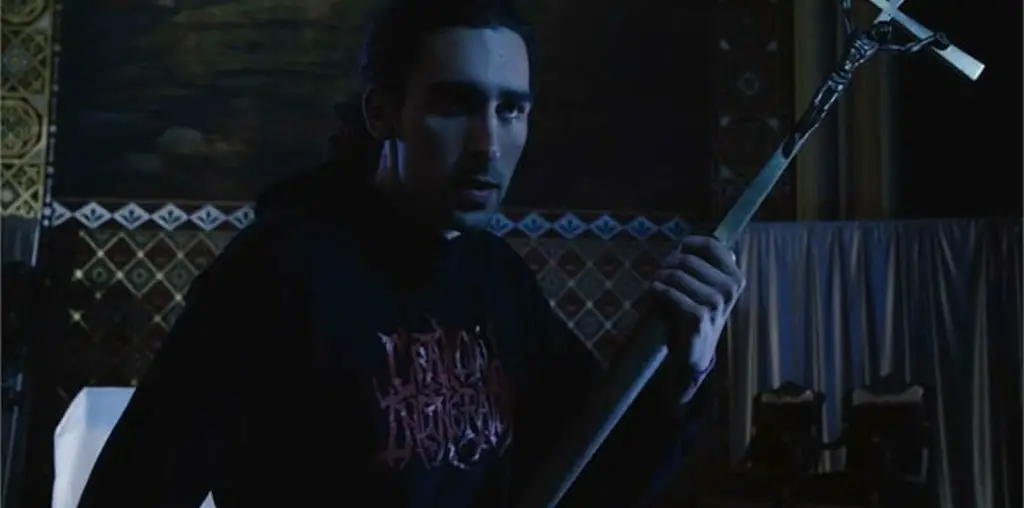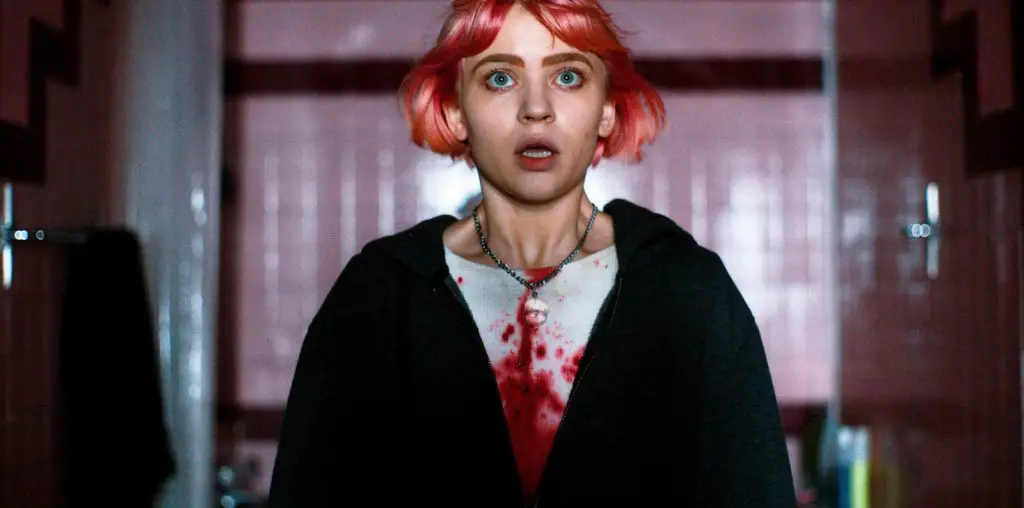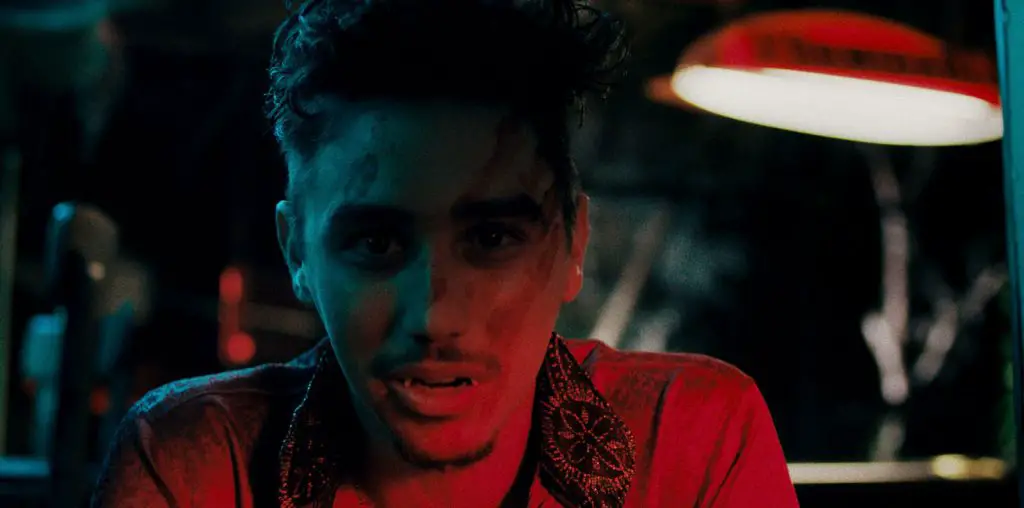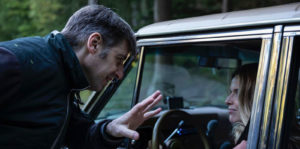
It goes without saying that rebuilding one’s life after a personal tragedy isn’t easy. While most of us don’t run off to Scotland to care for disturbed children like Dr. Winter (Thekla Reuten), even on a smaller scale, these changes can be terrifying. This newfound vulnerability frequently serves as a building block for horror cinema, and Marionette is no exception. Director Elbert van Strien ultimately tries too hard to differentiate his film with some outlandish narrative choices. However, there’s still a fair share of legitimately scary sequences that should please most discerning horror junkies. With its grey skies and incessant rain, Scotland is a fantastic location for a horror film, and the filmmaker utilizes the gothic towers and dark pubs to great effect.
Marionette, written by Ben Hopkins and van Strien, has an incendiary opening (literally) as we witness child psychiatrist Dr. McVittie (Peter Mullan) set fire to himself amidst an ostensible mental break. This sets up the arrival of Dr. Marianne Winter, a child psychiatrist moving to Aberdeen, Scotland, in the aftermath of her husband’s tragic death. She subsequently takes over the caseload of Dr. McVittie after he is committed to a local mental institution. One of her new patients is Manny (Elijah Wolf), an antisocial child with a penchant for drawing scenes of gruesome deaths. As Marianne begins to unravel the unexplained similarities between the drawings and actual deaths, her world begins to disintegrate, and important questions involving fate and free will dominate her every waking thought.
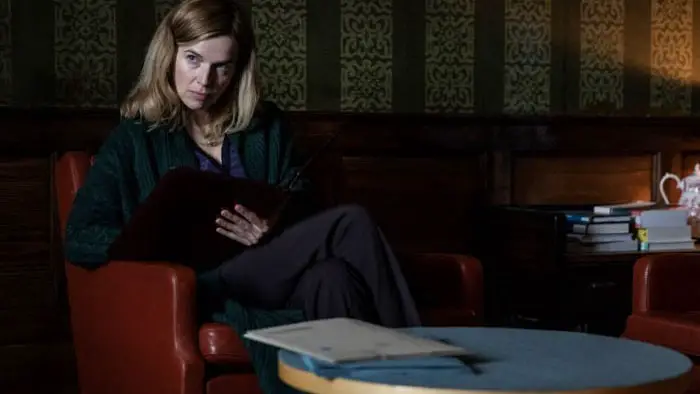
“…Marianne begins to unravel the unexplained similarities between the drawings and actual deaths…”
The creepy kid trope is an uninspired choice. The scares involving Manny don’t necessarily work unless one is among the few that still finds gloomy children an inherent source of terror. One can only hope that this all-too-frequent cliche is retired soon. Thankfully, several of the more intense sequences don’t directly involve the child, so more often than not, we’re spared the dull genre imitations that could have so easily resulted from this unoriginal approach.
However, the most glaring issues with the film lie in the script and overall sense of pacing. Marionette appears to conclude multiple times, and the last twenty minutes feel tacked-on, devoid of any purpose other than to postpone the end of what could have been a low-budget horror gem. The risk of spoilers prevents a detailed examination here, but it’s safe to say that the film goes to places that only work in causing unnecessary head-scratching.
However, even with all the nutty twists and out-of-place theological monologues, the film still delivers in setting the mood and atmosphere. The formal precision and atmosphere-building at play in Marionette still make it worthy of a look. Of course, most will react with chagrin at the jarring shift van Strien introduces late in the film. But with its fair share of scares and a noteworthy lead performance from Reuten, there are worse ways to spend an evening. But is it enough to make the film stand out in a crowded field of horror films that are readily available at one’s fingertips? Probably not.

"…fair share of scares and a noteworthy lead performance..."
